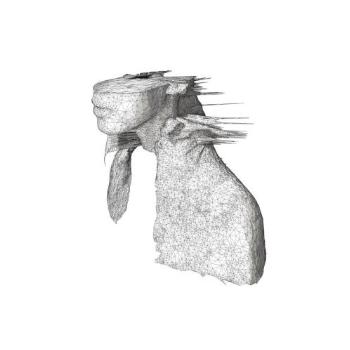I don’t have much time to write this article. Once this hits the internet, I’ll be discovered. I’m already preparing to flee at a moment’s notice. I have the necessary documents prepared to change my name and start a new life. Being an indie music enthusiast is a dangerous thing, I tell you, because once you have the wrong opinion, they’re after you, torches and Pitchforks in hand. It is at great risk to me and those to whom I am close that I reveal to you my deepest, darkest secret: I like Coldplay.
Somewhere, a festival-goer’s dreadlocks have shot up on end. Somewhere, a plaid-clad college freshman has just spat out his PBR in disgust. Somewhere, a blogger trying to uncover the next big indie thing has shed a single tear. Liking Coldplay is just not something you’re supposed to do once you become a music hipster. Sure, the unwritten hipster code allows you one guilty musical pleasure, but A Rush of Blood to the Head is no such thing. Damn it, it’s an honest-to-God pretty damn good record. I don’t care that he-who-liketh-Coldplay shall surely be subjected to snobby derision (Tangari 5:1), as long as I get to enjoy one of the greatest pure pop albums of the past decade again and again.
I mean, what hormonal high-school sophomore couldn’t have been immediately taken by the hypnotic arpeggios of “Clocks,” or the fist-pumping drums and soaring, weeping guitar hook of “In My Place,” or the pleading, pensive piano of “The Scientist”? In that day, A Rush of Blood to the Head was possibly the best album of all time for many an angsty teen. Yet, almost ten years after its release, the album still stands as Coldplay’s best argument for why they are the biggest pop band in the world.
It’s by no means a pop masterpiece, though. What we have is a collection of damn solid songs that know how to tap into the appeal of a mass audience. After the sudden success of “Yellow,” and its host album Parachutes, Coldplay took their game a step further. What A Rush of Blood to the Head became was a majestic refinement of the ideas on Parachutes. The first charging chords of opener “Politik” belie the band’s stadium-filling ambitions, while the band meditates their position in the pop music world. “Look at Earth from outer space / everyone must find a place,” sings Chris Martin. He expresses dissatisfaction with the past on the equally expansive arena-jam “In My Place.” Even the album’s ballads (“The Scientist,” “Amsterdam,” “Warning Sign”) are embellished to the point that they would level a smaller venue, something slightly hinted at on such Parachutes cuts as “Shiver” and “Trouble.” “Green Eyes” provides a jaunty mid-album respite from the grandiosity, while still managing to sound bigger than anything on Parachutes. Elsewhere, the album’s title track explores the political situation of that day. “I’m going to buy a gun and start a war / if you can tell me something worth fighting for,” Martin sings, expressing frustration at the patriotic eagerness of America and Britain to go to war in the Middle East. Finally, “Amsterdam” shows that Coldplay had saved the best for last. The track begins as a cry for help set over a simple but heart-tugging piano hook, before releasing the rest of the band in a cathartic explosion of guitars and drums. It ranks among the best songs Coldplay has ever recorded, and is a perfect closer for an album like this, beginning with echoes of the quietude of Parachutes, and slowly growing bigger and bigger. It’s the evolution of the band encapsulated in a single song.
Coldplay have in the past expressed that Parachutes is their least favorite record, which may explain why each song on A Rush of Blood to the Head takes the intimate and personal lyricism of that album and turns all the musical and production dials up to eleven. It is, effectively, their application for the position of “Biggest Band in the World.” Application accepted. Now, if you’ll excuse me, I need to run. I see an angry mob outside, and they’re all wearing plaid.

